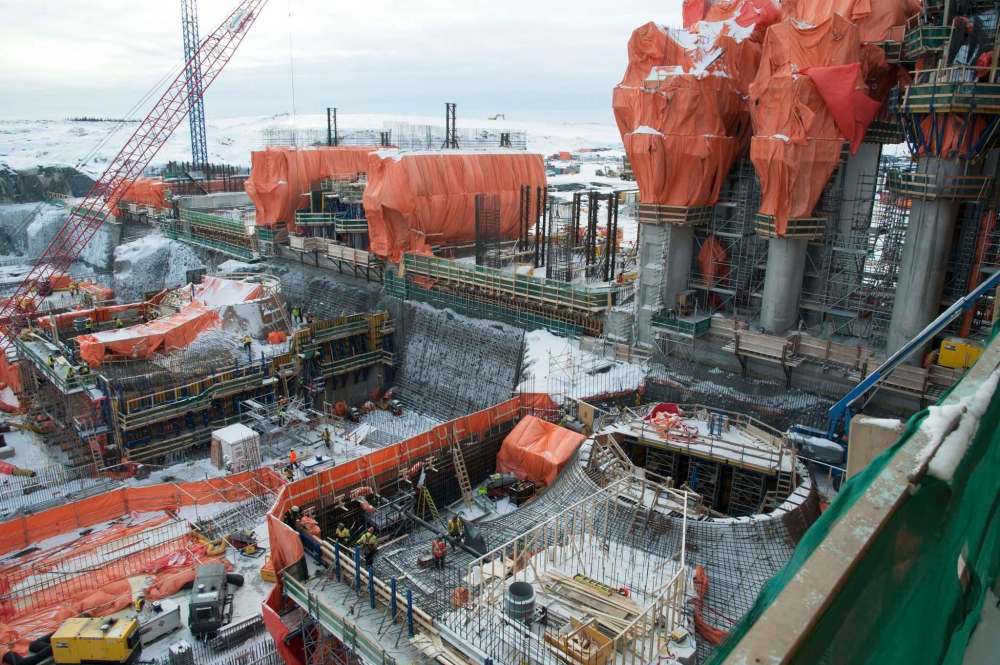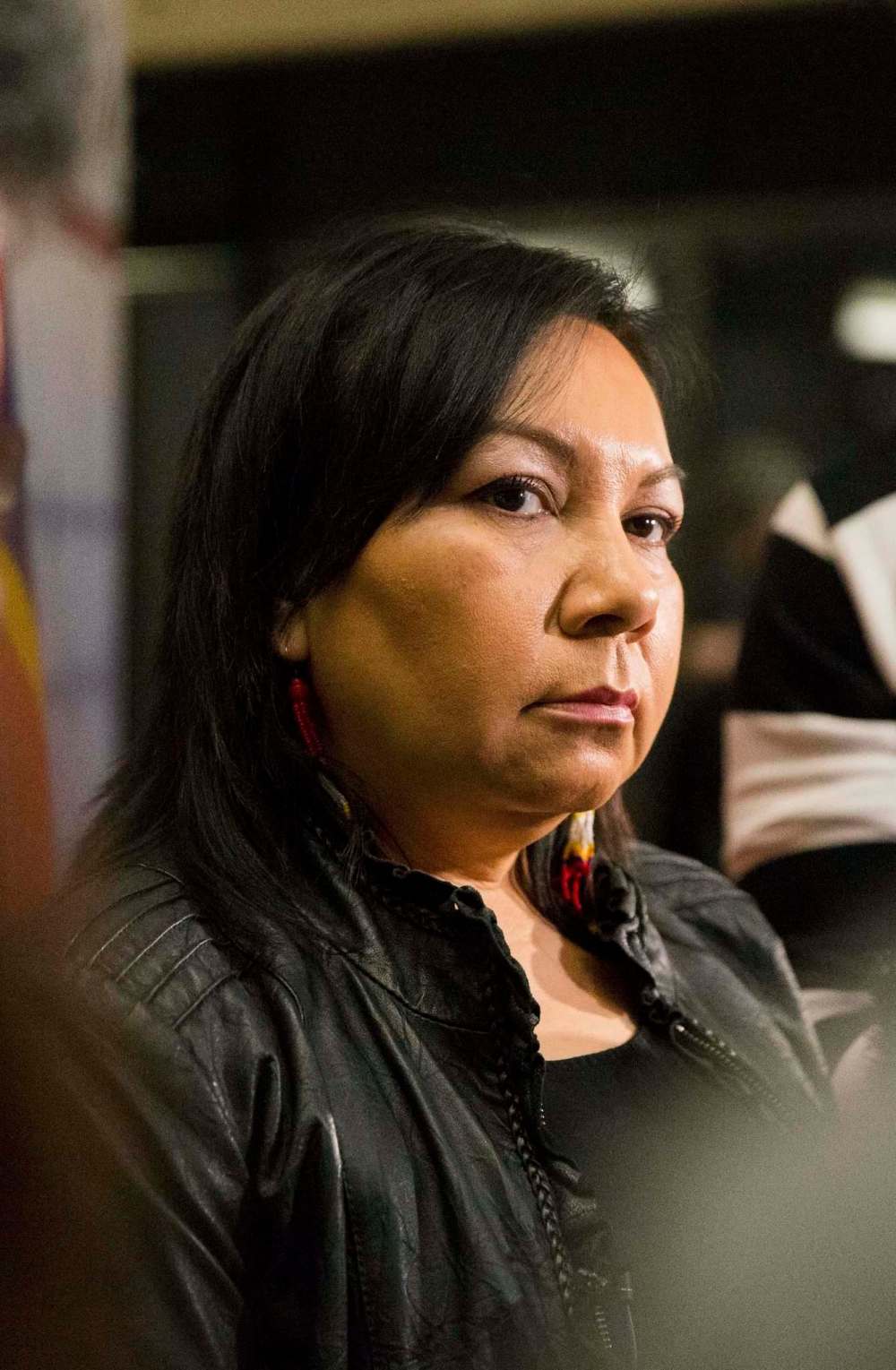Abuse at Hydro projects ongoing: ex-chief
RCMP investigating Aug. 5 incident; MLA says other communities affected
Advertisement
Read this article for free:
or
Already have an account? Log in here »
To continue reading, please subscribe:
Monthly Digital Subscription
$0 for the first 4 weeks*
- Enjoy unlimited reading on winnipegfreepress.com
- Read the E-Edition, our digital replica newspaper
- Access News Break, our award-winning app
- Play interactive puzzles
*No charge for 4 weeks then price increases to the regular rate of $19.00 plus GST every four weeks. Offer available to new and qualified returning subscribers only. Cancel any time.
Monthly Digital Subscription
$4.75/week*
- Enjoy unlimited reading on winnipegfreepress.com
- Read the E-Edition, our digital replica newspaper
- Access News Break, our award-winning app
- Play interactive puzzles
*Billed as $19 plus GST every four weeks. Cancel any time.
To continue reading, please subscribe:
Add Free Press access to your Brandon Sun subscription for only an additional
$1 for the first 4 weeks*
*Your next subscription payment will increase by $1.00 and you will be charged $16.99 plus GST for four weeks. After four weeks, your payment will increase to $23.99 plus GST every four weeks.
Read unlimited articles for free today:
or
Already have an account? Log in here »
Hey there, time traveller!
This article was published 25/08/2018 (2665 days ago), so information in it may no longer be current.
Manitoba Hydro workers are still perpetuating sexual violence against northern First Nations women, the area’s former chief says in the wake of a bombshell provincial agency report.
She said an incident happened this summer.
“There was a woman attacked by (a group of Hydro) workers,” said Sheila North, who ended her term this month as grand chief of Manitoba Keewatinowi Okimakanak. “I definitely know that it’s still happening, and there’s many reasons for it.”

North said the allegation emerged this summer, involving workers likely involved in the Keeyask generating station project, which involves four northern Manitoba reserves.
RCMP confirmed they are investigating a sexual assault report from Aug. 5 in Gillam, which is likely the incident North is referencing.
North personally asked the RCMP to take the claims seriously, as the complainant felt the Mounties were dragging their feet. “Not to say they weren’t going to look into it, but they certainly didn’t seem like they were in a rush to do it,” North said.
The Manitoba government released a damning report Tuesday by the arm’s-length provincial agency Clean Environment Commission, detailing allegations of discrimination, assaults and sexual abuse by Hydro workers involved in northern dam projects.
The claims, which date to the 1960s, include RCMP officers condoning, and even participating, in such acts in Fox Lake Cree Nation. Fox Lake chief executive officer Robert Wavey said this week Hydro workers are still perpetuating discrimination and abuse against locals, to a lesser extent.
Meanwhile, the area’s Liberal MLA, Judy Klassen, is calling on the Tory government led by Premier Brian Pallister to immediately send counselling support to northern communities affected by the release of the CEC report.
In a prepared statement, Manitoba’s minister of Indigenous and northern relations, Eileen Clarke, said the province is weighing what to do next.
“Given the seriousness of this report and the allegations that it contains, our government is working collaboratively across departments to develop a comprehensive response. This response will involve the impacted communities and will work to address the needs that they identify,” Clarke said.
It seems none of the communities who gave testimony to the CEC was warned by the province it would be releasing the shocking report Tuesday, which also included many environmental concerns.
The province didn’t give Hydro nor the RCMP much of a pre-emptive heads-up either, before calling for a criminal investigation into the report’s findings.
Klassen said she’s heard similar allegations about Hydro staff in other northern communities, but wouldn’t say where any such incidents occurred as the communities aren’t ready to share their stories. She hoped they would come forward in their own time.
“That way Hydro will have no choice but to acknowledge that this happened. It’s not an isolated incident. Hydro bred and created this toxicity,” Klassen said on Friday.
Manitoba Hydro said Thursday that nearly half of its northern workforce is Indigenous and it’s striving to create a safe workplace that doesn’t affect locals. The Crown corporation stated this week all staff and contractors “undergo cross-cultural training as part of their employment” with Keeyask.

RCMP said they’re reviewing the CEC report and reams of transcripts, which the national police force only received this week.
Klassen, the MLA for Kewatinook, said she had known about one violent incident in Fox Lake where the woman involved didn’t want to go public, adding she had no idea about the magnitude of the problems at the northeastern First Nation near Gillam.
North said she suspects that’s because outside predators take advantage of the remoteness of the area, knowing there’s little chance a victim will go to authorities, in part because of stigma.
“This kind of thing is still so taboo in a lot of our communities, so people would rather not talk about it. And that also means it’s not getting it addressed properly,” North said. “It is an important story — and it is taboo, but it has to come out at some point.”
As disheartening as it was to read about the trauma, Klassen said it’s important Indigenous women’s stories are finally heard and believed. Both North and Klassen attributed some of the outpouring of support to the rise of the #MeToo movement, a hashtag turned news tsunami that’s thrust exposure of sexual violence into the spotlight.
“We’ve tried this Me Too movement for so long, and it was never validated. We were never validated, and it’s only now that more women are speaking up — the non-Indigenous Me Too movement, I guess you can say — that’s what’s so unfair,” Klassen said.
“All these traumas we have to live with daily. It creates chaos in our lives.”
Klassen is on her way north to visit Fox Lake residents and to offer help. She said a public apology by the provincial Tory government is a good first step to rectify what happened, but is only a “drop in the bucket” when it comes to healing.
“I’ve heard so many times from elders and people, ‘Maybe one day we’ll get an apology. Most likely not in my lifetime though,’ and it’s just crushing,” she said.
dylan.robertson@freepress.mb.cajessica.botelho@freepress.mb.ca






